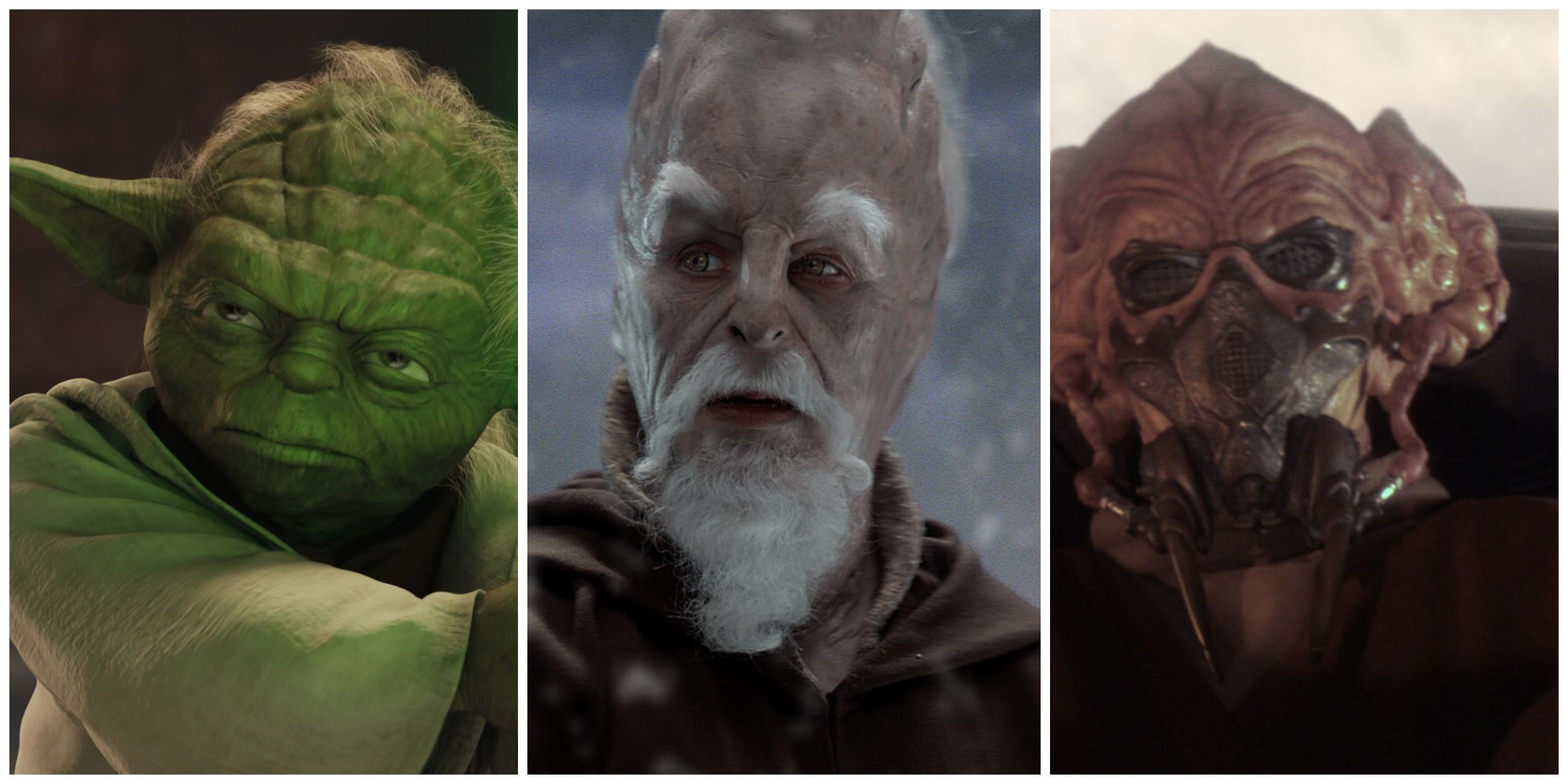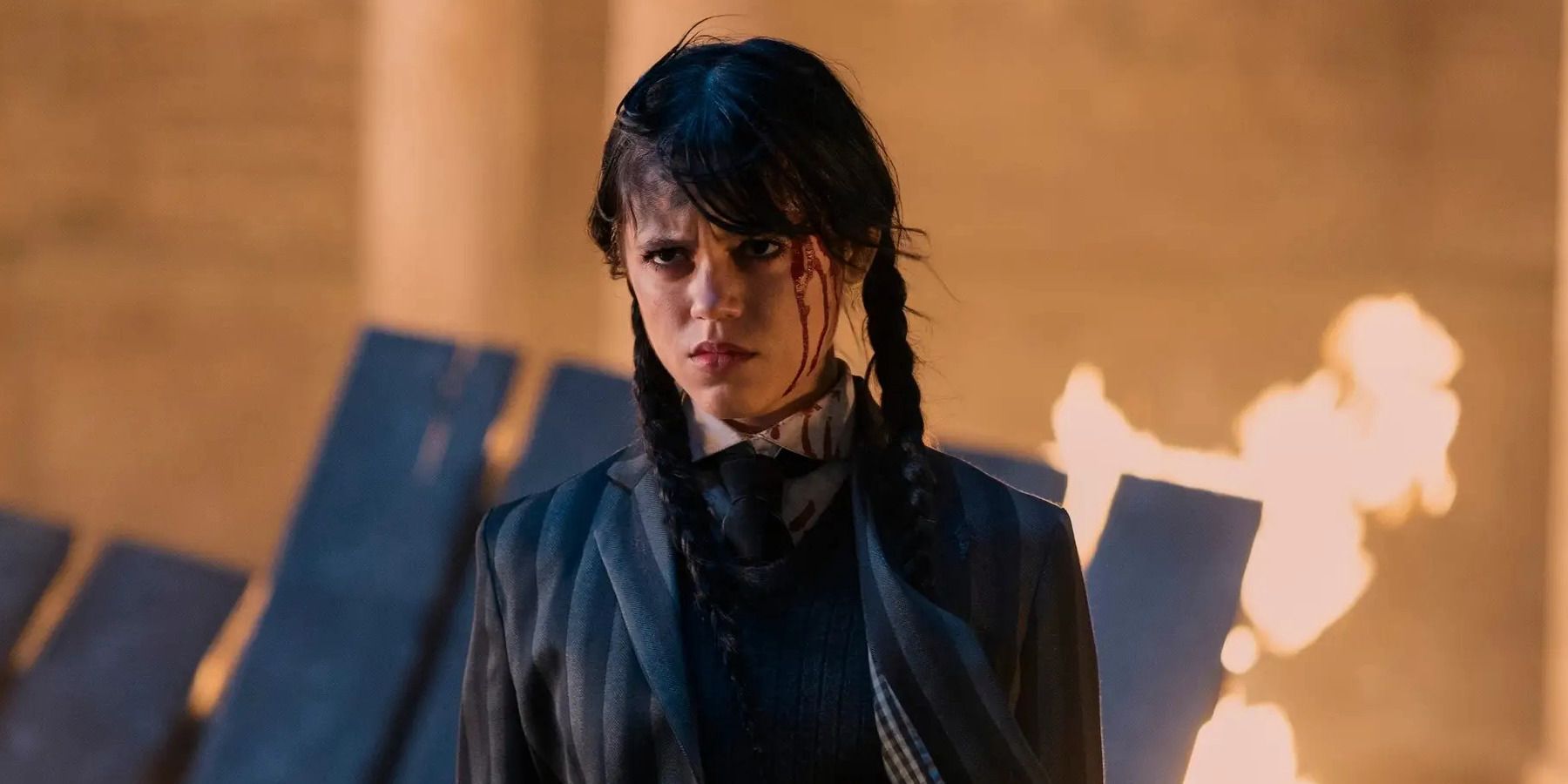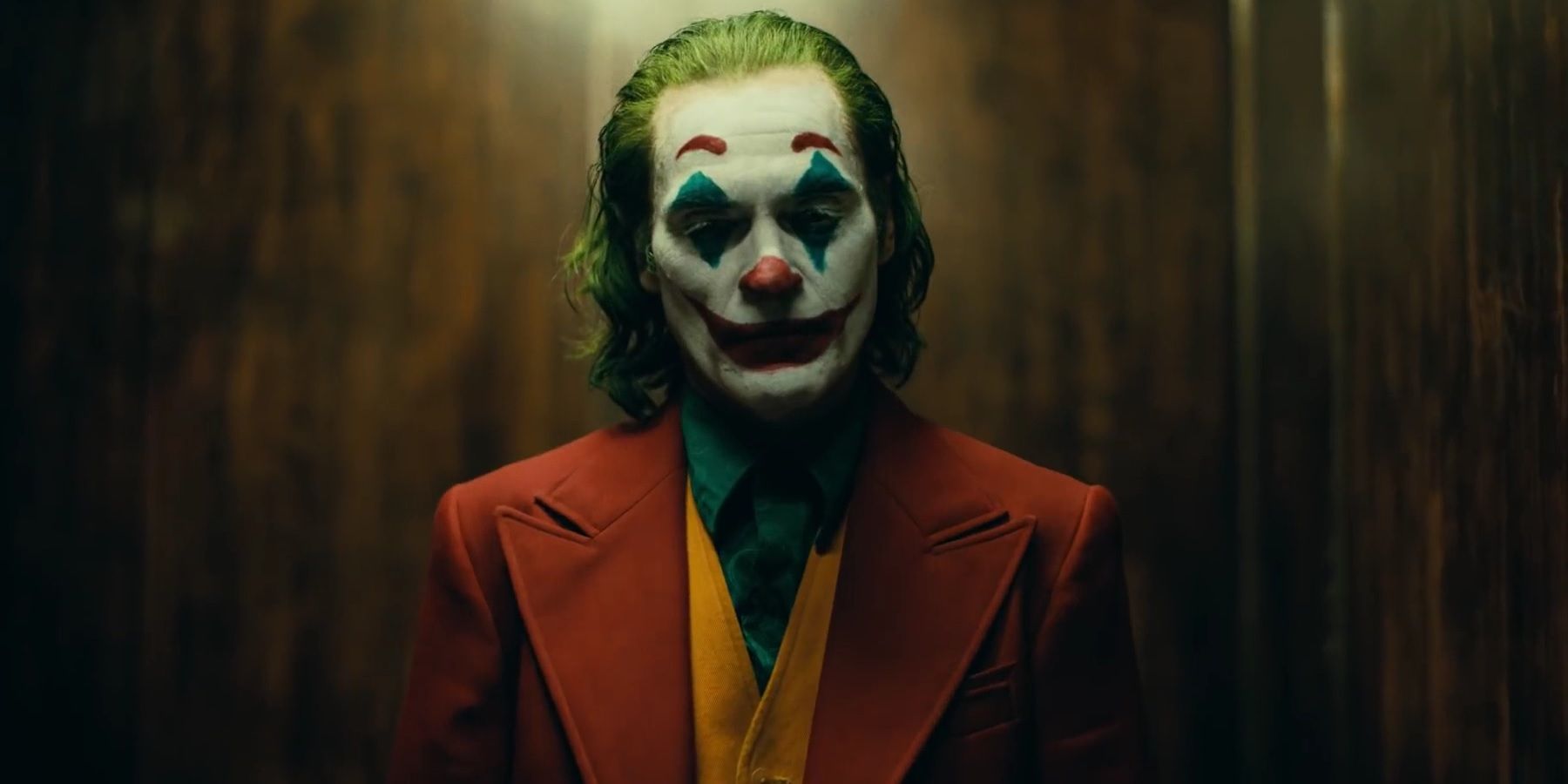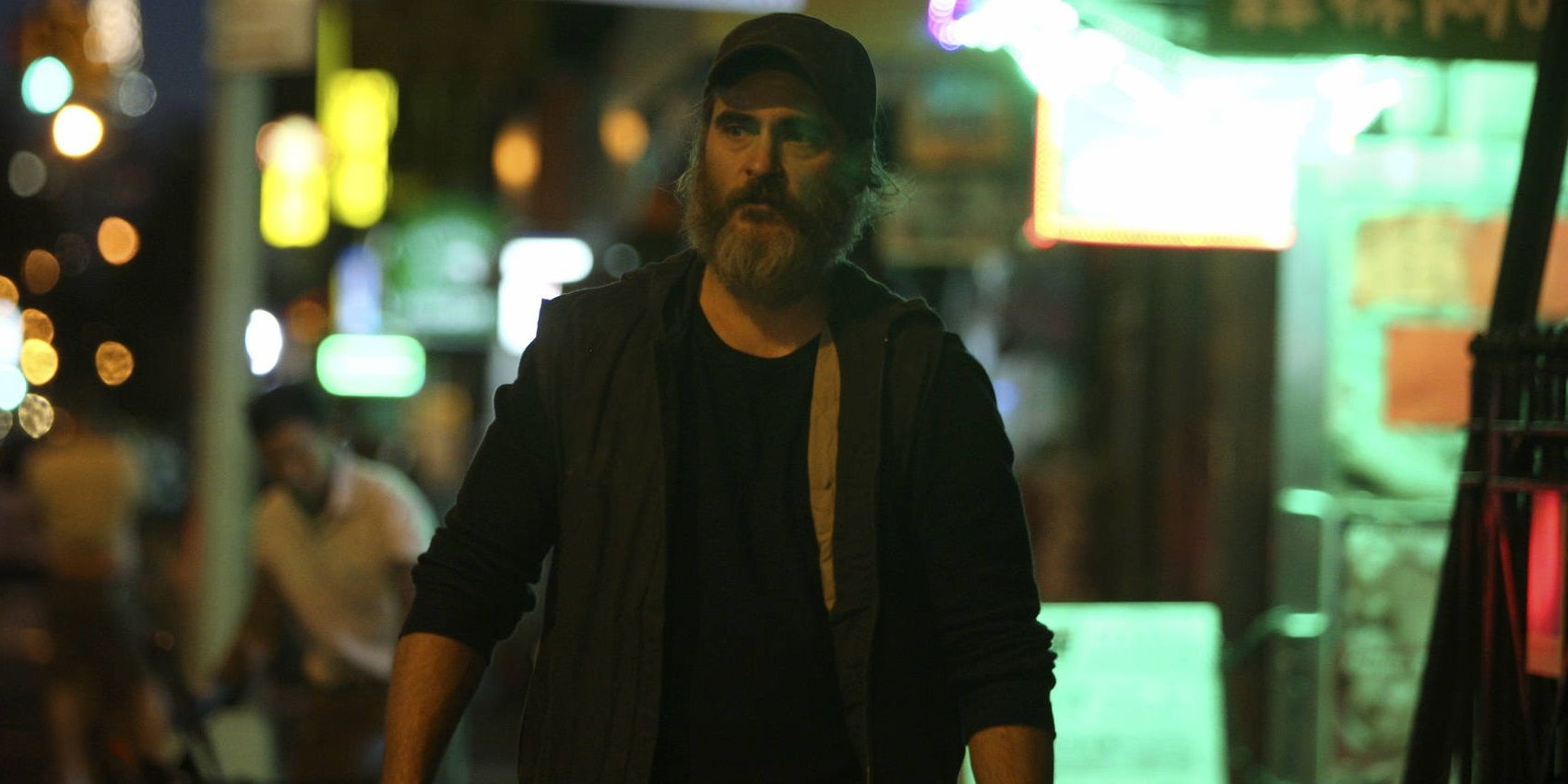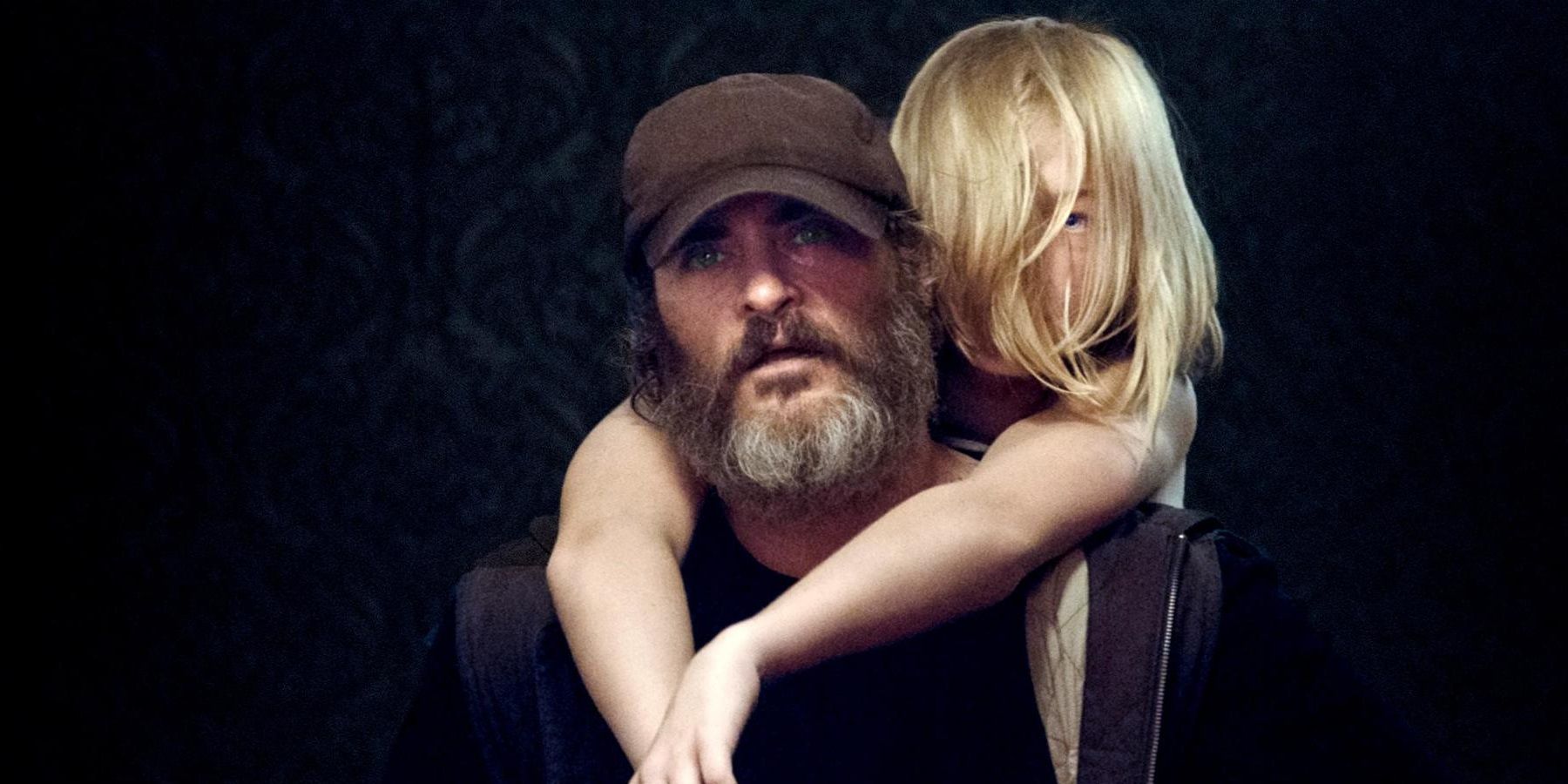In 2019, Joaquin Phoenix was widely praised for his lead performance in Todd Phillips’ Joker, which ended up winning the actor his first Academy Award. While the movie itself was pretty superficial and derivative of Taxi Driver and The King of Comedy without really bringing anything new to the table, Phoenix’s powerful portrayal of Arthur Fleck (and Lawrence Sher’s gorgeous cinematography) elevated the movie above its familiar script.
A couple of years earlier, Phoenix starred in a much more effective psychological thriller covering a lot of the same themes that didn’t receive nearly as much attention. Lynne Ramsay’s You Were Never Really Here, which premiered at Cannes in 2017, stars Phoenix as a traumatized ex-Marine named Joe who spends his days liberating sex-trafficked girls from the seediest corners of New York.
Joe finds himself in over his head when he takes a job from a politician whose daughter is a little too nonchalant about being sprung from an underground brothel. This blows open a wider conspiracy that leads Joe on a blood-soaked rampage of revenge. But despite its genre premise, You Were Never Really Here is a complex, artful, thought-provoking movie – the kind of complex, artful, thought-provoking movie that Warner Bros. touted Joker to be.
While Jokerused Arthur’s mental illness as a MacGuffin, You Were Never Really Here really digs into Joe’s complex psychology. He suffers from PTSD due to being abused by his parents as a child and seeing horrific things in the heat of war as a young man. Throughout the movie, he self-harms by suffocating and drowning himself, and the camera always lingers impartially to suggest the pleasure Joe derives from inflicting pain on himself. It’s certainly a challenging movie, and definitely not the run-of-the-mill revenge thriller its premise would suggest, but it’s in exploring the darkest corners of the human experience – usually the guilt attached to one or more unspeakable acts – that Lynne Ramsay has created her most beautiful work.
Ramsay is one of the greatest filmmakers working today. Her directorial debut Ratcatcher debuted in Cannes’ Un Certain Regard section in 1999. Its harrowing opening scene sees a 12-year-old boy unwittingly allowing his friend to drown in a murky canal. The rest of the movie follows this boy’s attempts to move on from such a horrible, scarring experience, which established Ramsay’s recurring theme of people’s struggle to live with their emotional baggage. The pain never goes away, so people have to learn to live with it. In Ramsay’s unsettling 2011 gem We Need to Talk About Kevin, Tilda Swinton plays the mother of a disturbed teenager (Ezra Miller) who learned archery and then used his bow-and-arrow to kill his dad, his sister, and a bunch of his classmates. While Kevin sits calmly in a juvenile detention center, his innocent mother Eva has to live in a town rocked by the heinous mass murder committed by her son.
In keeping with this spirit, You Were Never Really Here is about much more than Joe’s crusade of vigilante justice. It’s about his struggle to live with the self-loathing and self-doubt that came with his years of violent abuse and wartime tragedies. Since You Were Never Really Here is about a war veteran with PTSD becoming a vigilante in New York after connecting with an underage prostitute, it unsurprisingly drew comparisons to Taxi Driver, much like Joker would a couple of years later. But where Joker borrows the style and aesthetic of Scorsese’s masterpiece, You Were Never Really Here takes broader influence from Taxi Driver’s themes of isolation and the consequences of violence.
When Joe takes a hammer into a brothel full of underage girls and brutally murders every john in there, Ramsay doesn’t want audiences to cheer. She depicts most of these scenes completely impartially through the security cameras set up around each brothel. Most of the actual violence takes place off-screen. Despite Joe’s arguably noble cause, Ramsay doesn’t make a distinction between “good” violence and “bad” violence. In Joker, on the other hand, Todd Phillips makes the guys on the train and Robert De Niro’s talk show host Murray Franklin so ridiculously hateable that the audience jumps up and down when Arthur shoots them all dead.
In Joker, the subtext is all spelled out in the text. Arthur’s sessions with his psychiatrist put all of his mental struggles into words instead of showing it visually. Gotham’s elite, like Thomas Wayne and the suits that Arthur kills on the subway, are all portrayed as cartoonishly evil and greedy, making them easy to root against without actually conveying any kind of message about class struggle. In You Were Never Really Here, the subtext is really subtext. The audience is left to put all the pieces together based on Ramsay’s carefully arranged flashbacks.
While Joker and You Were Never Really Here are both Taxi Driver riffs in which Joaquin Phoenix shares a complicated relationship with his live-in mother and becomes a vigilante, the latter tackles its themes in much subtler, more powerful ways. It’s a cerebral, slow-paced drama that provides plenty of genre thrills, but also goes above and beyond with a deep psychological character study. Ramsay’s movie is dark and edgy, not because it indulges in graphic violence, but because it explores the implications of that violence.

